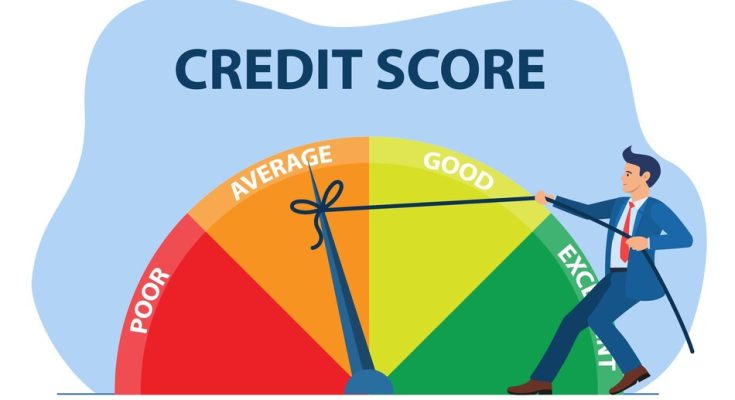Welcome to our thorough explanation of the five key credit score variables. Your credit score affects your capacity to get loans, mortgages and reasonable interest rates. Knowing your payment history, credit usage ratio, length of credit history, credit mix and new credit inquiries may help you make intelligent choices and enhance your creditworthiness. We’ll examine each element and provide tips to achieve and maintain a good credit score.
| Factors | Description |
| Payment History | Timely payments show responsibility and improve score. |
| Credit Utilization Ratio | Keep credit use below 30% for a good score. |
| Length Of Credit History | Longer history usually indicates better creditworthiness. |
| Types Of Credit | Mix of installment and revolving credit can boost score. |
| New Credit Inquiries | Frequent inquiries may temporarily lower your score. |
Payment History
Payment history is a significant credit score element. This element is crucial since it shows your debt repayment reliability. Lenders check loan and credit card payments for punctuality. Paying promptly shows creditors you’re a responsible borrower which improves your credit score. However skipping payments or defaulting on loans may significantly impair your score making it easier to get favorable credit arrangements. Keeping your credit score sound requires regular payments.
Credit Utilization Ratio
Your credit utilization ratio is the ratio of your current credit use to your total credit. This percentage is crucial to creditworthiness. Lenders may worry about high credit use since it indicates credit dependence. For a good credit score, keep credit use below 30%. Paying off bills and not maxing out credit cards might boost this area of your credit rating. Maintaining low credit use shows prudent management, which may increase your credit score.
Length Of Credit History
Another critical component in your credit score is your credit history duration. Lenders evaluate creditworthiness and financial behavior based on account age. A more extended credit history is usually better to help creditors assess your repayment habits. If you’re new to credit or need more credit history, it may take time to build credit. However, those with long credit histories may get better rates. Maintaining older accounts in good standing may boost your credit score over time, even if you can’t influence their age.
In-depth Look At Additional Factors
Types Of Credit
Your credit score also depends on your credit type. Lenders prefer installment loans (mortgages, auto loans) and revolving credit (credit cards, lines of credit). Responsible credit management shows you can handle several financial commitments, which may boost your credit score. But it’s essential to balance and only seek credit when required since lenders may flag excessive debt or requests.
New Credit Inquiries
When seeking new credit, hard inquiries are made on your credit record. Infrequent queries are appropriate, but frequent ones might indicate financial trouble or credit overuse. Be careful when applying for new credit accounts since these queries might temporarily reduce your score. Combining many queries within a specific window (e.g., while looking for a mortgage or vehicle loan) usually counts as a single query, limiting the credit score effect.
Credit Mix
Credit scoring algorithms also examine your credit mix. Diversifying your credit shows you can handle many financial commitments. Combining installment loans like a mortgage or school loan with revolving credit accounts like credit cards might boost your rating.
Adaptability in handling diverse forms of debt makes people with a balanced credit mix less dangerous to lenders. Although less critical than payment history or credit use, credit mix still affects your credit score. To increase this component of your credit profile responsibly add various credit accounts to your portfolio.
Credit Age Diversity
Credit age diversity is the age range of your credit accounts. A combination of new and old accounts may boost creditworthiness. Lenders prefer long-term prudent credit management, so maintaining a good balance of new and existing accounts might boost your credit score.
New credit inquiries might temporarily reduce your score, so be careful when creating new accounts. Closed accounts might also lower your credit score by shortening your credit history. Manage current accounts effectively and carefully add new ones to maximize credit age variety.
Public Records And Collections
Public records and collections may hurt your credit and finances. Bankruptcies, foreclosures , tax liens and collections may lower your credit score for years making it hard to get credit. These unfavorable marks might be devastating but they fade as you mature and improve your credit.
If prior financial troubles have damaged your credit record, restore it by making regular payments, lowering debt and practicing excellent financial practices. You may also resolve pending collections or public records to improve your credit score. Since negative items have less influence as they age, regular credit behavior changes may lead to progressive score improvements.
Understanding these extra elements that affect your credit score allows you to proactively manage your credit and build a healthy credit profile. By remaining educated and making intelligent financial choices you may realize credit rating systems and improve your creditworthiness for future financial transactions.
Conclusion
Maintaining financial health requires knowing the five credit score variables. Paying attention to payment history credit usage ratio length of credit history credit mix and new credit inquiries may help you build and keep good credit. Making on time payments, managing credit responsibly and being selective about new credit applications will boost your credit score. These techniques improve your financial stability and future borrowing options.
Website Source Links
- https://www.lendingtree.com/credit-score/
- https://www.investopedia.com/terms/c/credit_score.asp
- https://www.northwesternmutual.com/life-and-money/how-to-check-my-credit-score/
- https://www.experian.com/blogs/ask-experian/what-factor-has-the-biggest-impact-on-credit-score/
- https://www.bajajfinserv.in/insights/5-factors-that-have-an-impact-on-your-credit-score
